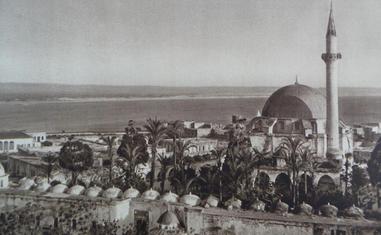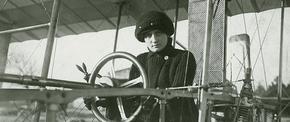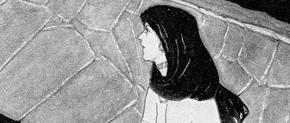The views expressed in our content reflect individual perspectives and do not represent the authoritative views of the Baha'i Faith.
As soon as the Baha’i exiles arrived in the prison-city of Akka, the jailers placed Baha’u’llah in a cell by himself.
They crowded most of the other exiles into another cell, and confined Abdu’l-Baha in the basement in a room that had formerly been used as a morgue. The effects of the humid, putrid air in the room remained with him the rest of his life.
RELATED: Exile: A Prophet, Banished from His Country
On the first night, prison officials denied Baha’u’llah and the exiles food and water. The only water available to them was in a small pool that had previously been used for washing. Due to dehydration, the nursing mothers among the exiles had no milk for their babies. Children cried and begged for food throughout the night. The next day, each person finally got a little water and gritty rice that a few of them managed to eat. One of the exiles found among his baggage some dried bread. They made a dish with this bread and sent it to Baha’u’llah, who was very ill. But Baha’u’llah asked them to give the food they had made to the children. Food continued to be scarce in the days that followed. Whenever there was a shortage, Baha’u’llah would eat only bread and insist that his food feed the children.
Baha’u’llah’s writings describe his terrible period in this repugnant prison, calling Akka “the metropolis of the owl,” where no living thing but the predators thrived:
Erelong shall the exponents of wealth and power banish Us from the land of Adrianople to the city of Akka. According to what they say, it is the most desolate of the cities of the world, the most unsightly of them in appearance, the most detestable in climate, and the foulest in water. It is as though it were the metropolis of the owl, within whose precincts naught can be heard save the echo of its cry.
Almost all of the exiles became severely ill with malaria, dysentery, or typhoid. Baha’u’llah’s eldest son Abdu’l-Baha, only 24 years old at the time, initially remained healthy, and cared for his sick companions day and night. The guards did not permit the prisoners to summon a physician, so Abdu’l-Baha used some quinine and bismuth he had brought to treat the illnesses, prepared broth and rice for the sick, and provided what comfort he could.
In 19th-century Middle Eastern prisons, everyone understood that a sentence of any length meant a life sentence. The rampant disease, lack of food, and the incredibly inhumane conditions meant that most prisoners did not survive for very long. Three of the Baha’i exiles died soon after their arrival in the prison.
RELATED: Baha’u’llah’s Suffering and the Birth of a New Belief
All their money confiscated, the exiles could not pay for the burials. Baha’u’llah gave his one remaining possession, a small carpet, to the guards in exchange for a proper burial for the dead. Later the exiles discovered that the guards had not fulfilled their end of the agreement and had buried their bodies without coffins.
But as their appalling imprisonment wore on, the guards watched their prisoners carefully, and soon came to admire Abdu’l-Baha. Accustomed to guarding criminals, they had never seen anyone care for others so devotedly without regard for his own rest or comfort. Eventually, the long weeks of caring for the sick caused Abdu’l-Baha to fall ill as well. The guards, moved by his self-sacrificing actions, finally allowed a physician to come and attend to Abdu’l-Baha, and he soon recovered.
This selfless devotion to others would ultimately and miraculously soften the jailers’ hearts and turn the metropolis of the owl into a verdant garden.

















Comments
Sign in or create an account
Continue with Facebookor